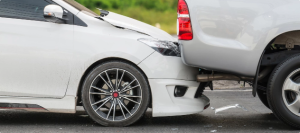Comprehensive and Collision Insurance Explained
Comprehensive and Collision auto insurance along with liability and medical is what is known as full coverage. Comprehensive insurance covers you in the event your car is damaged by vandalism, weather, or theft. Collision insurance
covers your vehicle is damaged when you strike another vehicle or object. If your car is financed, you will likely be required to obtain full coverage.
While collision and comprehensive insurance are not legally required types of car insurance in any US state, they can both save you from major financial devastation in the event of an accident. Here’s the thing: The type of
insurance that is required in just about every state—liability insurance—does not protect your vehicle if you’re in an accident. It just covers you if you’re found legally responsible for harming someone else or their property.
This is where comprehensive and collision coverage comes into play: These forms of coverage, which are often sold as a package, actually protect your vehicle. However, they do this in different ways.
Let’s dive into the difference between comprehensive and collision coverage so you can get a handle on what they include, and why (and if) you should get them.



